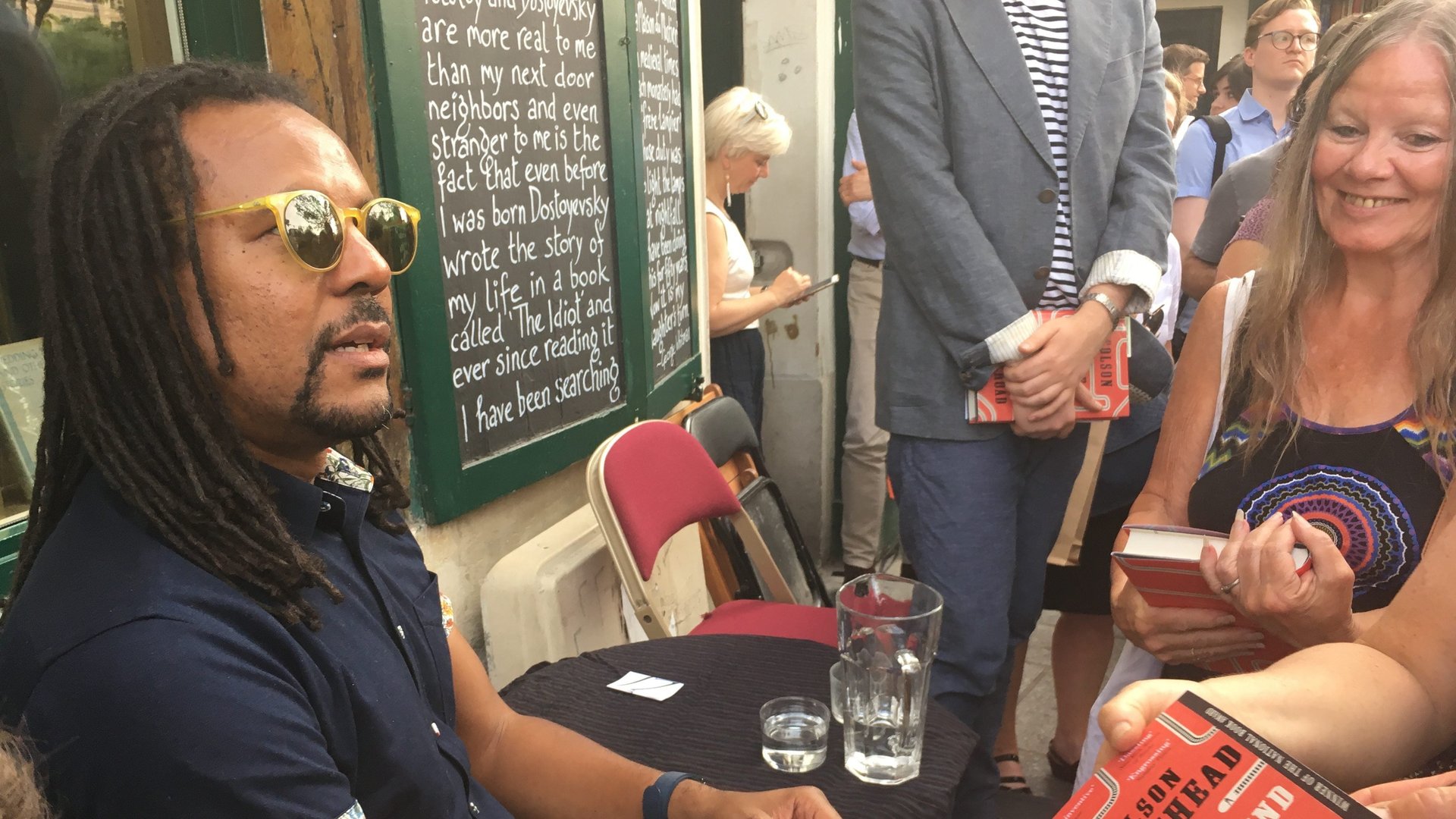Colson Whitehead makes the case for striving to be a fox and not a hedgehog
You know what a Wes Anderson movie is. And what to expect from an Aaron Sorkin script. If you’re reading Elena Ferrante, John McPhee, or Toni Morrison, you can expect consistent style, scenarios, and settings. But there are some writers and creators whose past works don’t predict future ones. And that can be its own beautifully fruitful strategy, too.


You know what a Wes Anderson movie is. And what to expect from an Aaron Sorkin script. If you’re reading Elena Ferrante, John McPhee, or Toni Morrison, you can expect consistent style, scenarios, and settings. But there are some writers and creators whose past works don’t predict future ones. And that can be its own beautifully fruitful strategy, too.
The American writer Colson Whitehead is a prime example. Whitehead won the Pulitzer Prize last year for his novel The Underground Railroad, which reimagines the 19th-century network of safe shelters for slaves as a real train. Whitehead’s previous seven books include a zombie novel, an impressionistic ode to New York, an imaginative detective story about an elevator inspector, and a coming-of-age novel about the affluent black community of 1980s Sag Harbor in the Hamptons. In a reddit AMA today (March 26), Whitehead said his next book will be “realistic, grim!” and based in 1960s Florida.
If you were to characterize the writer based on the popular aphorism that divides people into foxes or hedgehogs—knowledgeable in a diverse number of things or deeply knowledgeable on one thing—Whitehead may prove closer to fox.
Whitehead’s influences similarly are all over the map, which might be a comfort to any frenetic readers or consumers of culture. In his AMA, Whitehead rattles off his wide-ranging favorites: The Twilight Zone, Ralph Ellison, Thomas Pynchon, Mohsin Hamid, Judy Blume, H.P. Lovecraft, and Frank Miller. In other interviews, Whitehead has cited zombie movies like Night of the Living Dead, The Devil’s Rain, and Dawn of the Dead; post-apocalyptic films set in New York, like Escape from New York and Soylent Green; and books as different as Cormac McCarthy’s The Road and ZZ Packer’s Drinking Coffee Elsewhere. He’s also known to be a fan of the Ramones, David Bowie, and Sonic Youth, and a compiler of writing playlists made up of punk, hip-hop, EDM, and jazz.
“It all goes in the hopper,” Whitehead said on reddit.
Many, many books have inspired, taught, and edified me over the years. Also movies, music, and TV — it all goes in the hopper. As a kid: The Twilight Zone, Arthur C. Clarke, John Carpenter, Stephen King, Le Guin, Lovecraft. In college: Ellison, Morrison, Pynchon. Lately: Elena Ferrante, Mohsin Hamid, Denis Johnson. Things I’ve enjoyed lately: NK Jemison’s The Fifth Season, Madeline Miller’s Circe, Julie Otsuka’s The Buddha in the Attic.
And:
I do a lot of outlining before I start, so I know the destination.
Research – depends! For Sag Harbor, I watched 80s movies and listened to new wave music and old school hip hop. Not too taxing!
My poker book The Noble Hustle, meant learning how to play tournament poker, reading up, and interviewing poker players. Fun, but still work.
The Underground Railroad sent me to primary sources — slave narratives and oral histories of slaves’ lives. I found a lot of things that wouldn’t go into a history book — what they ate, what they wore, their slang…
Late 70s-early 80s Stephen King was pretty great. I came from a horror movie/horror book loving family, so always had him and Peter Straub around, and various Lovecraft reissues. Jude Blume — from Blubber to Then Again Maybe I Won’t to Wifey. The Wizard of Earthsea books. Famous Monsters. And comics — Marv Wolfman, Chris Claremont, John Byrne, Frank Milller and Bill Mantlo were my idols…
Taken as a whole, Whitehead’s career and interests are a clear case that for some people, leaping from project to project with genuine curiosity can indeed add up to something worthwhile, even if it feels like starting over each time. Whitehead’s path may be welcome encouragement to anyone afraid they’ve wasted time going down too many rabbit holes, instead of chipping away at one giant hole over a lifetime.